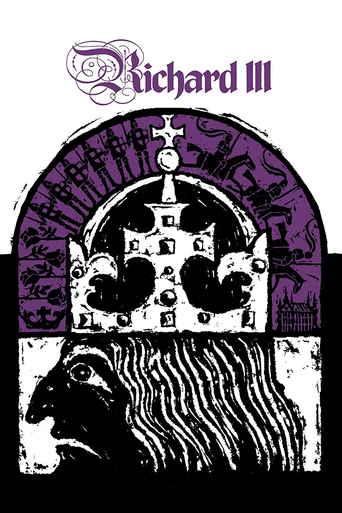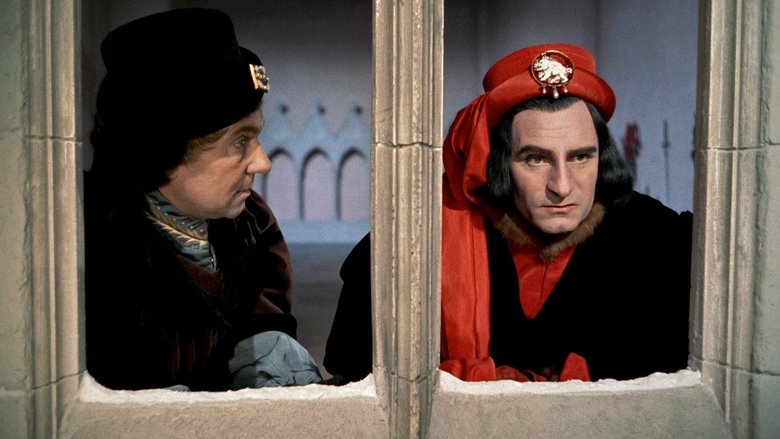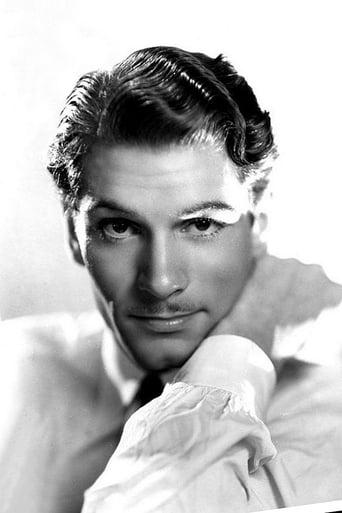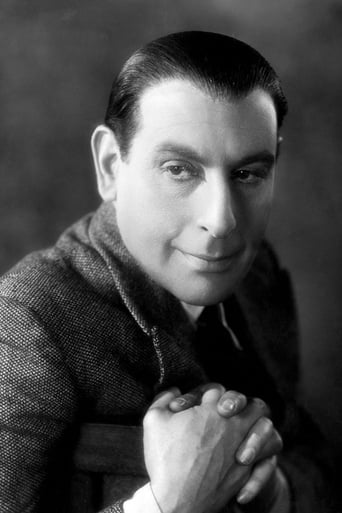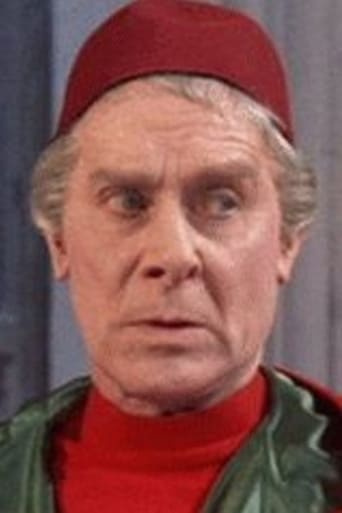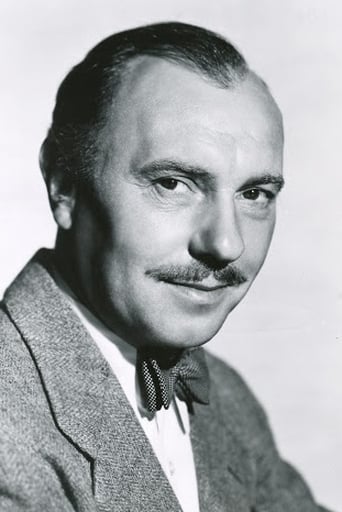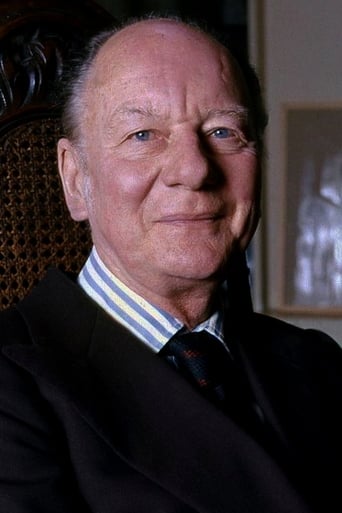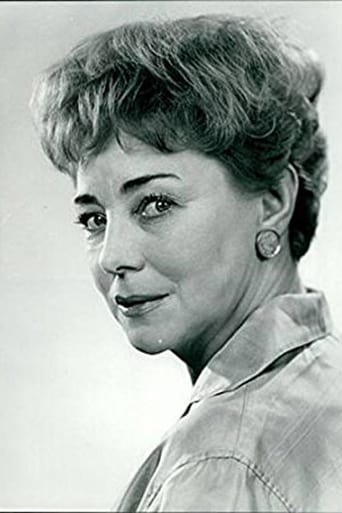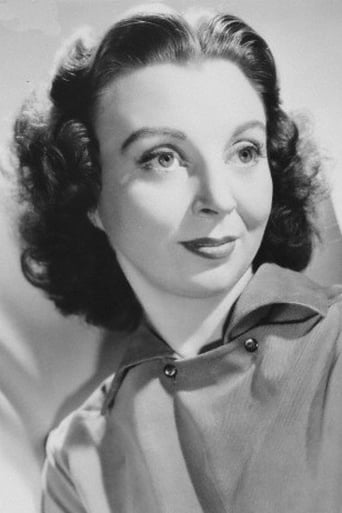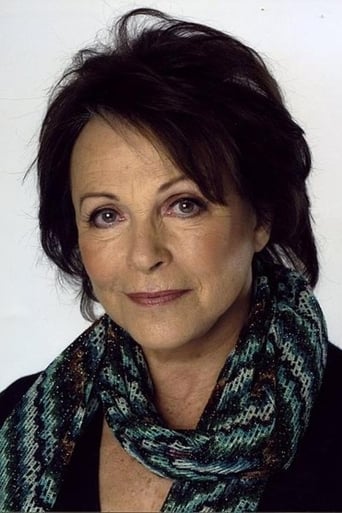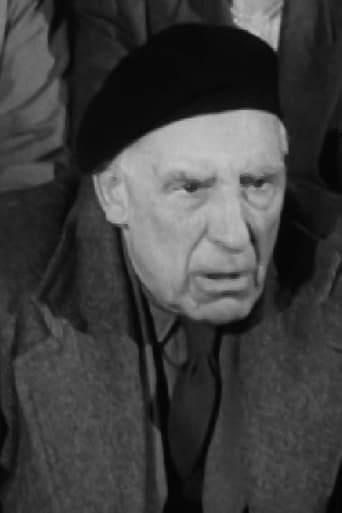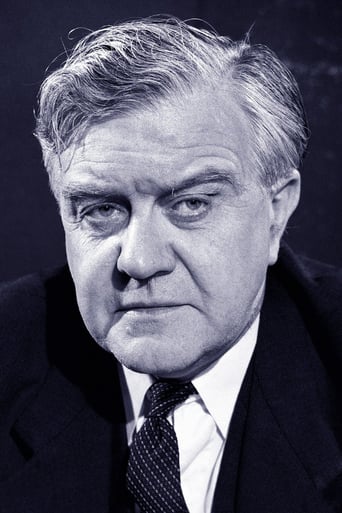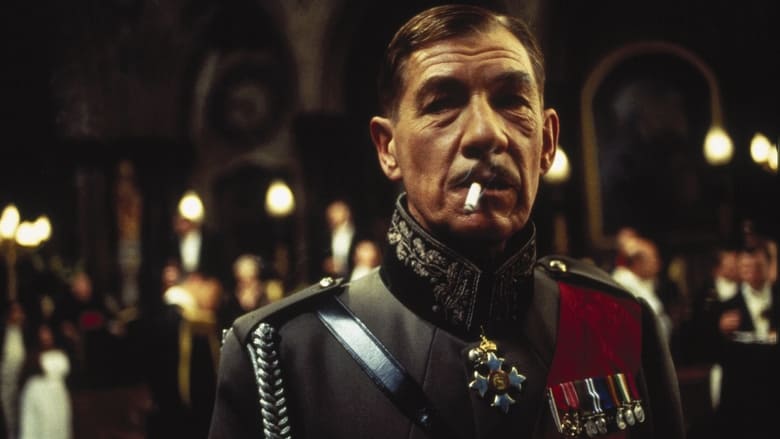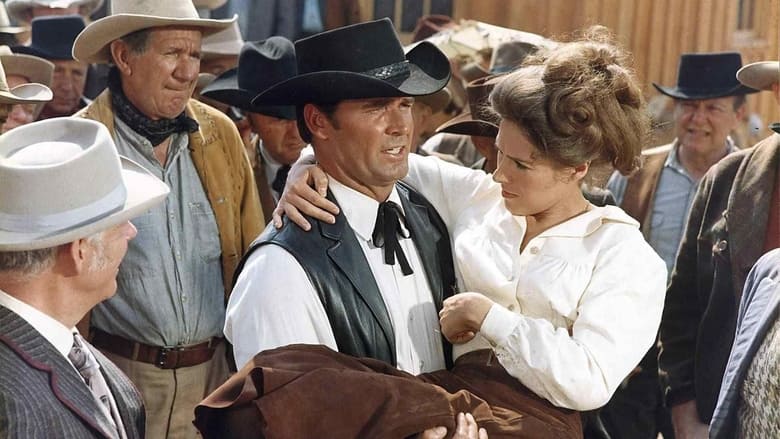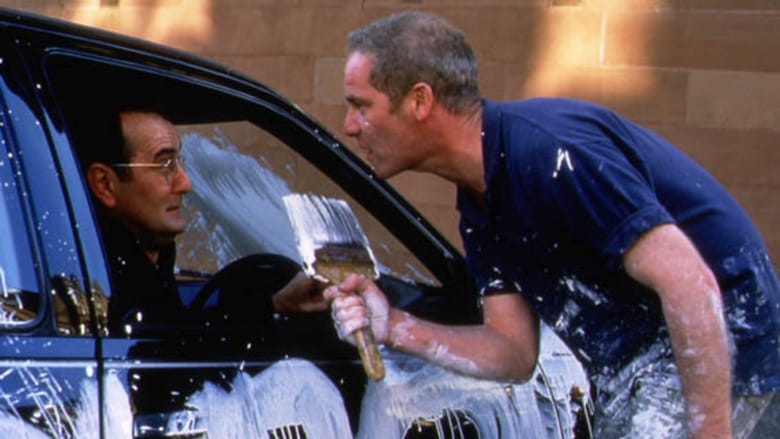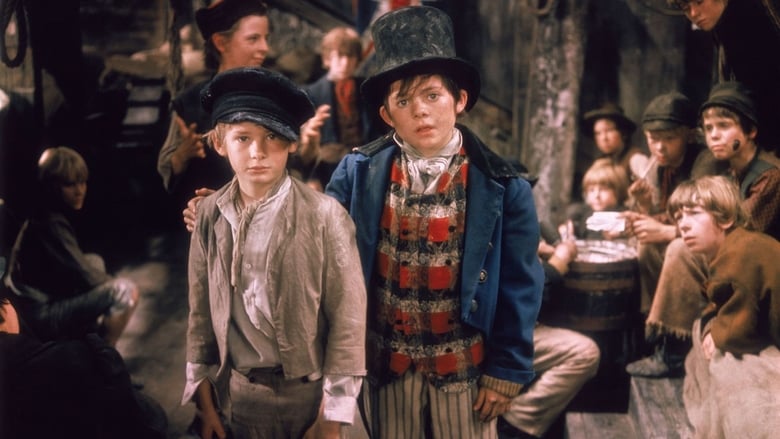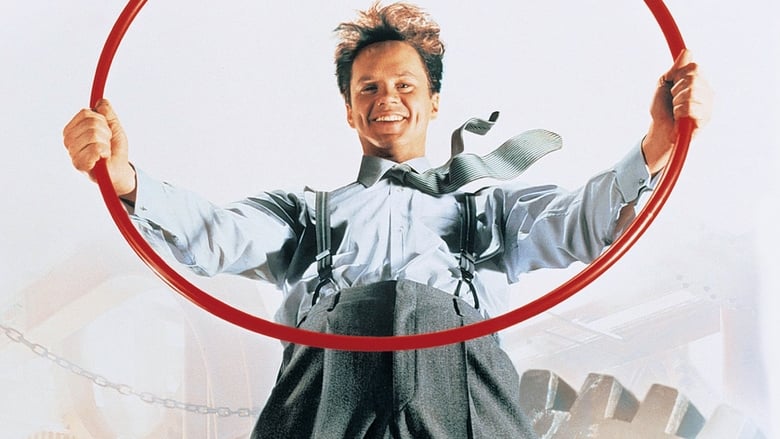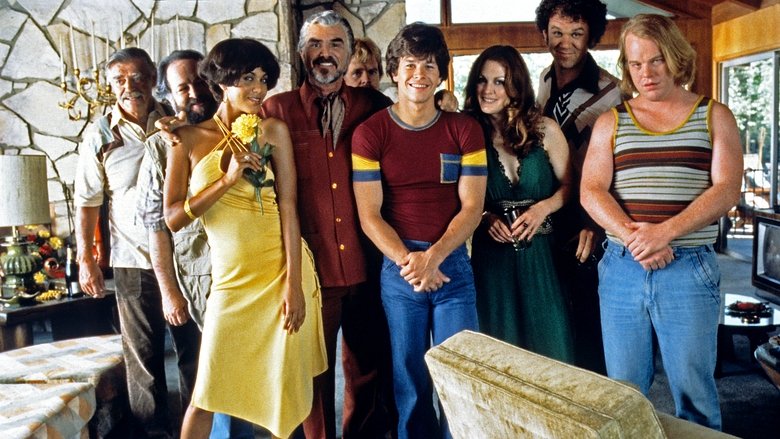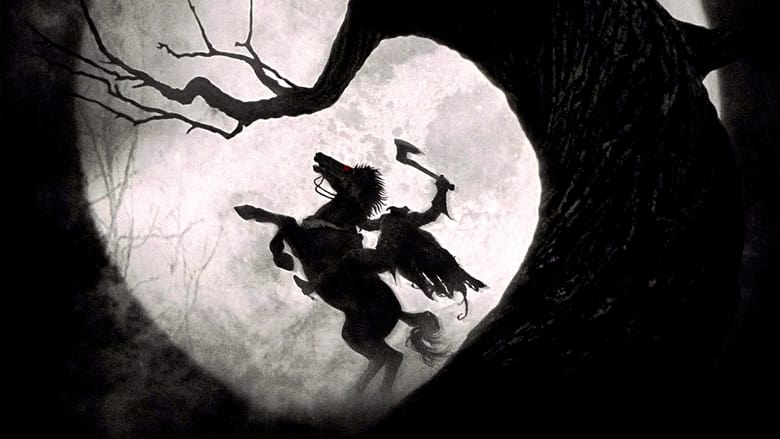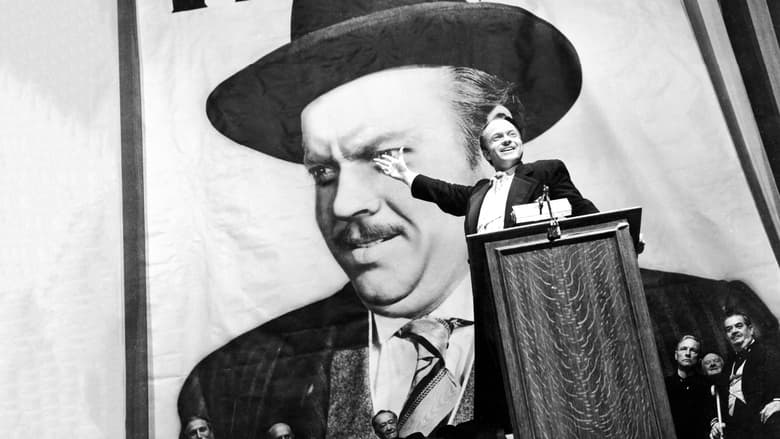Having helped his brother King Edward IV take the throne of England, the jealous hunchback Richard, Duke of Gloucester, plots to seize power for himself. Masterfully deceiving and plotting against nearly everyone in the royal court, including his eventual wife, Lady Anne, and his brother George, Duke of Clarence, Richard orchestrates a bloody rise to power before finding all his gains jeopardized by those he betrayed.


Similar titles
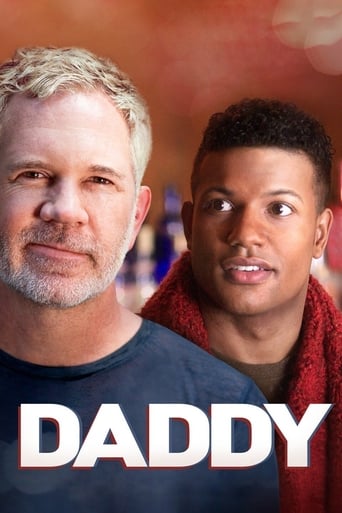

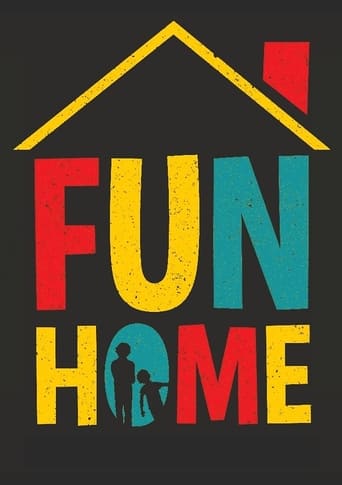
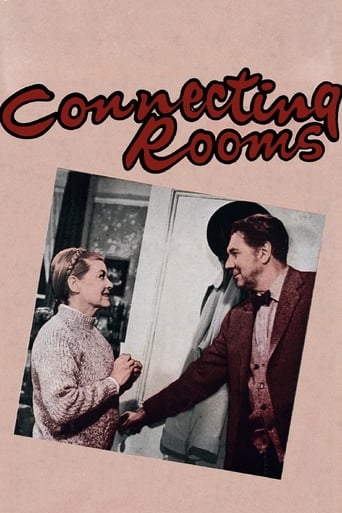
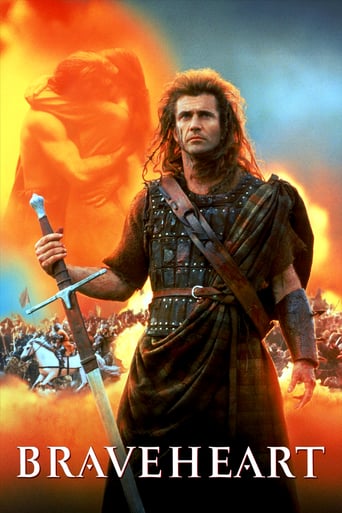


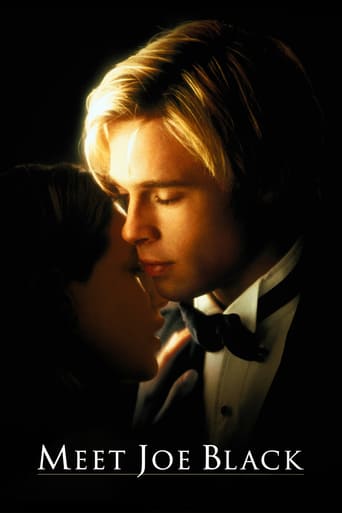
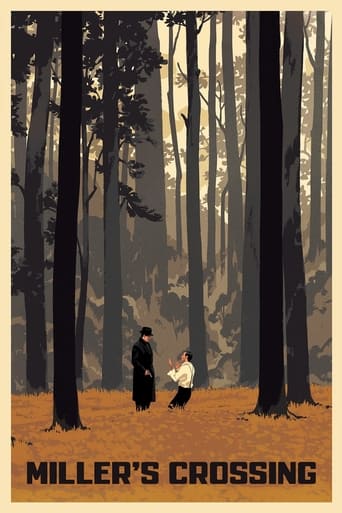
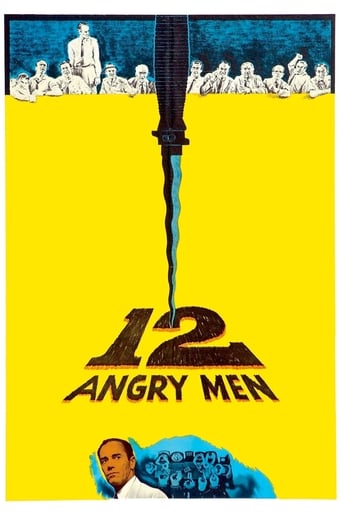
Reviews
This movie was a hard one for me to determine whether or not it was set back OR way ahead of its time. Laurence Oliver, one of the kings of cinema, directs, adapts, and stars in what is William Shakespeare's RICHARD III.I would like to make clear right off the bat that THIS FILM IS NOT INTENDED FOR THE SIMPLE MINDED. From how technology spoils us day-in and day-out, the dialogue is strictly SHAKESPEARIAN. Meaning, that the dialect might be hard to decipher in a new AGED kids brain. I would say the only people who might find this movie appealing are **the ones who are fans of the legendary playwright and have been familiar with his work so much that it is a second language. Other than that, I doubt a clueless 8th grader would have any idea what's going on.What really drew me to this project was mostly the CAMERA WORK; really long takes mixed with the POETIC MOVEMENTS and DIALOGUE. // Another element that caught my eye was the SYMBOLISM IN WARDROBE DESIGN. I believe it is at Richard's worst moments that we see him wearing mostly black or something dark (if the scene is a struggle than perhaps the costume is complex, as well, to fit the mood).**TYPICAL Shakespeare: I mean, we got the old tall-tale that carries traces of TRAGEDY, ANGUISH, DESPAIR, BETRAYAL (of course), GHOSTLY HAUNTINGS, 3 ACTS (was there three prophecies?), etc. etc. Pretty much similar to MACBETH and HAMLET where we endure the rise and fall of some douchey-prick that wants control of the throne.I do have to say, the ENDING to this story is pretty epic (on the battlefield) from where it takes you. I really enjoyed it; sorta made the three hours worth watching. It just has a lot of cliché moments that not even Shakespeare can fix at this day in AGE.I give this JANUS film a 7 out of 10 on IMDb. **It reminded me a bit of Marin Scorsese flick, where we have an evil, not relatable guy who is our main protagonist and how we cheer him on throughout his process. Anyone agree?-- Michael Mendez
Laurence Olivier garner the reputation as the greatest actor of the 20th century. However, he was not very fond of film acting, calling "an inferior medium." On film, Olivier did some performances that were not very good. I thought he sucked in The Merchant of Venice. I thought he was bad in some parts in Rebecca. But there were some instances where he was at the level of his stage acting. He was awesome in Marathon Man, he owned Henry V, and his Hamlet is still the best portrayal and the best Shakespeare movie ever made. Thing is, his version of Hamlet was heavily condensed. If he included more parts, everyone would agree that his Hamlet was the best movie and portrayal. Luckily, his Richard III makes up for it. Hamlet and Richard III are the hardest characters to play and Olivier nails both, but is slightly better in this. Richard III follows a man that does all he can to become king, be it murder, extortion, framing, robbery. But he is also supposed to be a sympathetic and admirable character. How a character can be evil and likable is what makes him so interesting and so hard to play. Olivier does it to a T. There are moments in the film where Richard speaks to the camera looking deep into it with a freaky look on his face as if he is about to kill you. The opening soliloquy is enough to make the viewer uncomfortable. Olivier must have done this many times on the stage. Now, you can see just how good Olivier was on stage by watching this. Very, very, very few film performances are superior to Olivier as Richard III.
Shakespeare himself must rejoice whenever this version of his play/movie is shown. It boasts his own witty dialogue placed in the mouths of some of the greatest actors of our times to make it understood these several centuries later. It's in technicolor so you see the pomp & circumstance in glorious Technicolor (literally). You even get the humor dripping with bitter irony most of the time. The one flaw of the film was the decision of Olivier's make-up (or lack of it). It's clear from Shakespeare's description in Olivier's/Richard's first soliliquoy that Shakespeare wants him to be shown deformed & heavily so. He should look like Charles Laughton in The Hunchback of Notre Dame. But, perhaps because Olivier didn't want himself disfigured, the only hint we get is a limp. I think this does discredit to the author even though it plays to the prejudice that Hunchback fought against, that the deg formed are evil. Having said that, it's a wonderful movie & a classic that can be forgiven its one flaw of perfection.
It was Olivier's production of HENRY V that led to his showing what a creative producer/director of film he could be. His Oscar came from his "Freudian" interpretation of HAMLET. But I suspect that most people would say his greatest Shakespearean film (both as star and director) was this one - his performing the greatest villainous role in the English language, King RICHARD III.One can carp about the historical accuracy of RICHARD III from now until doomsday. That monarch was attacked by two of England's leading literary figures: Sir Thomas More (who is also a political/religious martyr), and Shakespeare. In comparison only two literary figures of any consequence ever defended him: Horace Walpole (the 18th Century diarist and letter writer - best recalled, if at all, for his Gothic novel THE CASTLE OF OTRANTO) and Josephine Tey, the dramatist and mystery novelist who wrote a detective story, THE DAUGHTER OF TIME, to defend him. More, a Tudor government official (eventually Lord Chancellor, before he fell from official favor) was close to one of Richard's foes, Cardinal Morton, and so accepted Morton's stories about Richard's murderous guilt. He wrote a HISTORY OF RICHARD III. Shakespeare, to keep official favor with the court, had to placate it with it's glorification of Henry VII, and vilification of the monarch who Henry defeated and killed. Walpole, a student of 18th Century skepticism and scholarship, wrote SOME QUESTIONS REGARDING RICHARD III, which point by point debated the so-called crimes Richard committed. Walpole, however, also was convinced that the pretender, Perkins Warbeck (executed 1499) was actually the younger one of the two Princes in the Tower. Tey used her gifts as a mystery novelist to examine the case as an intellectual puzzle for a recuperating Inspector Adam Grant in the novel. But she is basing her views on work done up to about 1935 or so, especially the Life of Richard III by the exploration historian Sir Clement Markhams. Today we realize more information from contemporary documents have come out. The balanced view is that Richard is truly a usurper (but this was par for the political course of 1483, especially after all of the blood and plotting of the War of the Roses). However, his actual planning of the deaths of Henry VI and his son, of George, Duke of Clarence, of Lords Rivers, Grey, and Hastings, and of his two nephews has never been conclusively shown (it could have been his one time ally the Duke of Buckingham, or his enemy Henry, Earl of Richmond/Henry VII, or even Cardinal Morton!). But without a dramatist or novelist of Shakespeare's stature, we are left with only Shakespeare's Richard - the finest example of a Machiavellian monarch on stage. So it is that the role can never be played poorly, unless by some stupid concept thrown in by a director (witness Richard Dreyfus's having to play Richard as an over-the-top homosexual in THE GOODBYE GIRLS due to Paul Benedict's idiot scheme of production). An example of the universality of the role was shown by Sir Ian McKellan's version a decade ago, set in the 1930s, suggesting Richard as a potential Fascist leader of Great Britain (complete with his "Hog" symbol used in place of a swastika). That film version too was wonderful.Olivier is ably assisted by his cast of Richardson, Guilgud, Baker, Hardwicke, Bloom, and the others who show what happens when a power-hungry monster is allowed to divide and conquer his opponents, and then seize total power. There are moments in the film where Olivier's real personality comes out in frightening intensity. One is where he is playing with the two nephews, and when one teasingly refers to his humpback, the camera and lighting shows an intense hatred and anger rising from his eyes (the boys, by the way, notice it and cower). The other is the point when Richard decides to rein in his erstwhile ally in his rise, Buckingham (Richardson) who is at court to present his request for some payment for his assistance. Richard shouts impatiently "I'm not in the giving mood today!", and crashes his scepter down narrowly missing Buckingham's hand. The Duke notices this, and soon is off on his ill-fated rebellion.RICHARD III was a first rate film - in my opinion it may be the best filmed version of a Shakespeare play made before 1980. It is regrettable that,whatever the reason, Olivier never directed another Shakespearean film (he planned at least one I would have been interested in - CORIOLANUS - which never got beyond the stage production). So enjoy the three we have, and his performances in the films OTHELLO and AS YOU LIKE IT, and the television versions of his THE MERCHANT OF VENICE and KING LEAR. It's all we'll ever have.
